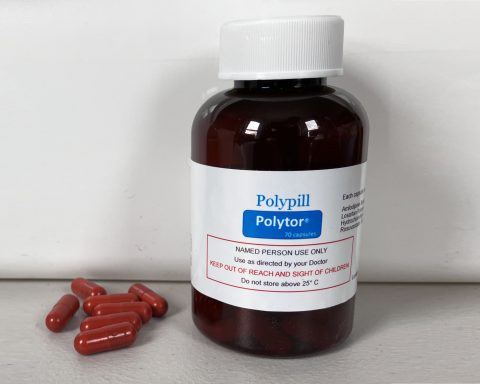
I am a GP registrar working in London and over the past few months I have felt increasingly apprehensive about the future of general practice training in the UK. The latest blow to our training comes in the form of the recommendations from the DDRB report on the future of doctor’s pay.1
This independent report states the GP trainee supplement should be removed (currently 45% supplement) and replaced with “a flexible pay premium” known as a RRP (recruitment and retention premium), with trainees paid for the amount of unsociable work that is carried out, and a possible flexible pay premium adjusted locally, to help target problems with recruitment.
Firstly, in the majority of cases, this change will mean a substantial pay cut as trainees progress from a SHO (ST1 and 2) to a registrar (ST3). A large number of hospital rotations will include a substantial amount of unsociable work, which currently is remunerated with normally between 40-50% banding on top of the basic salary. However, the new proposals will mean despite career progression, increased responsibility within a higher risk setting, and working far more independently in the registrar year, there will be a significant pay cut. This would equate to a substantial penalty for choosing general practice as a career.
The BMA have suggested that the recommendations would mean an average pay cut of 30% to GP registrars.2 In real numbers, this is equivalent to a £15,000 pay cut, with virtually no consultation with the GP community or GP trainees, and now with the BMA leaving contract negations, we have no voice to express our concerns.
Secondly, a number of trainees within my own scheme have significant financial commitments, including families, mortgages and other dependants. With the potential of these changes being imposed onto us in the very near future, this will have a considerable impact on our take home pay, with many of us having to think about whether the job remains sustainable. I fail to understand how this fits into the “drive in recruitment” the government wants to achieve, with the goal of 50% of medical graduates entering general practice by 2016.3
Thirdly, there is a need to examine closer the “flexible pay premium” the recommendations suggest can help replace the supplement and solve the problem with GP recruitment. They state these can be implemented in “some parts of the UK”, with no specifics on how much this would equate to, who would be eligible to receive this, who decides whether this should be provided and what protection would we have for this premium. As a London trainee, I have little hope that this will be provided to London trainees or any other trainees who live in an area of the UK where the recruitment for GPs still remains competitive, and given the increase cost of living in these inner city areas, the impact on us will be increased.
Finally, what message does this send to medical students and junior doctors thinking of general practice as a career? With constant negative press in the media, proposals for seven day working, increased pressures to stop A&E admissions and transferring more services from the acute sector to us in the community, it appears to be that general practice is being treated on one hand as the saviour for all the problems in the NHS with no real increased funding to match these expectations.
Interestingly one of the solutions from the government to reduce pressure on us appears to be hiring physician assistants in general practice. These are people with a health related degree who complete two additional years in University. They can take histories, examine patients, diagnose conditions and propose management plans. These jobs are being advertised with a salary of £50,000 very similar to the current pay we receive as a GP registrar. These physician assistants need to be under the direct supervision of a GP, who it appears will still hold ultimate responsibility for the patient.4,5
So it appears the public are going to be seen in the future by staff who are not doctors, who have not gone through the rigorous GP training schemes, who have not sat the AKT or CSA exams and are likely to be paid significantly more that those about to become fully trained GPs. I hope my fellow GP trainees, qualified GPs and ultimately our patients are aware of what is being proposed for the future of primary care in the UK.
References
1. Department of Health. Review Body on Doctors’ and Dentists’ Remuneration (DDRB) review for 2015: written evidence from the Department of Health. https://www.gov.uk/government/uploads/system/uploads/attachment_data/file/382236/DDRB_2015_-_written_evidence_from_DH.pdf
2. British Medical Association. Contract proposals for junior doctors. http://bma.org.uk/working-for-change/in-depth-junior-and-consultant-contract/ddrb-recommendations-analysis-for-juniors/junior-doctors-contract-negotiations-faq#5
3. GP Taskforce Initial Report: Securing the Future GP Workforce Delivering the Mandate on GP Expansion. http://hee.nhs.uk/wp-content/uploads/sites/321/2014/07/GP-Taskforce-report.pdf
4. NHS Careers. Physician Associate. http://www.nhscareers.nhs.uk/explore-by-career/wider-healthcare-team/careers-in-the-wider-healthcare-team/clinical-support-staff/physician-associate/
5. BMJ Careers. Physician assistants: friends or foes to doctors. http://careers.bmj.com/careers/advice/view-article.html?id=20008022










Thank you for your blog Ravi. It’s interesting to get the views of Specialist Trainee in General Practice on what impact the proposed changes to junior doctor contracts might have on primary care in England.
A well written researched interesting article with loads of facts acting as an eye opener (1) for the general public in the last two paragraphs and (2) for the media to help broadcast & feed the public facts rather than propaganda headlines blind folding the general public. I highly recommend anyone to read this article as the information provided will affect either your or the future of but not limited to your children, grandchildren, siblings.
A question to the author; in paragraph for you mentioned the negative impact to you and your colleagues. From the moment you start university up to the time you finish and change your title,from junior doctor, don’t you incur any debt that you have to pay back to the government or someone of it from student loan finances.. It will be more interesting as well to see rough figures of accumilated by medical students from the moment they enter university up to the moment they become consultants.
Finally the whole of Great Britain should wake & avoid the probability of NHS privatisation and atleast main “Great” in Great Britain.